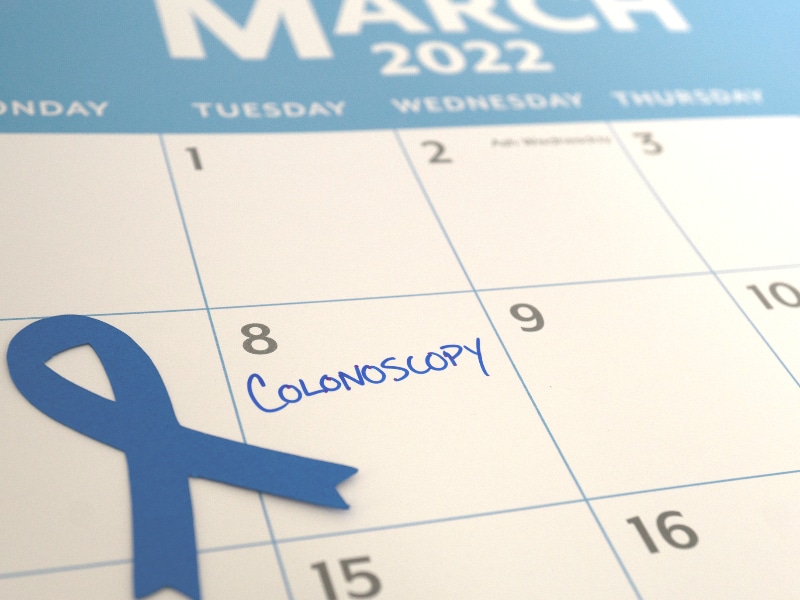It wasn’t that long ago that colon cancer was a worry reserved for middle age, and a colonoscopy served as a sort of rite of passage.
Now patients in their 30s and 40s are increasingly common, says Muhammad Memon, MD, gastroenterologist on the medical staff at Methodist Midlothian Medical Center, and there are a host of options for screening tests.
“A colonoscopy is still the gold standard,” he says. “But at-home tests have helped us increase access. And that’s important because younger people are getting colon cancer.”
It’s a trend that worries GI specialists like Dr. Memon: While colorectal cancer rates are way down for seniors — especially after baby boomers began to reject smoking and embrace screening — the rates for adults younger than 50 have more than doubled since the 1990s.
“We call it ‘early age’ colon cancer,” Dr. Memon says, “We don’t know why it’s happening, but there’s a lot of research right now into different lifestyle factors.”
Dr. Memon shares what we do know about colorectal cancer and the screening options available, from a virtual colonoscopy to a tiny camera you could simply swallow in the not-too-distant future.

Trust your gut to advanced GI care at Methodist by finding a digestive health specialist near you. Visit MethodistHealthSystem.org
WARNING SIGNS
When it’s identified early on, colon cancer is one of the most preventable forms of cancer. Unfortunately, it’s also one of the most insidious because early warning signs are rare.
“That’s what makes screening so critical,” Dr. Memon says.
While there are warning signs, the disease may have progressed to a less-treatable stage by the time these tell-tale symptoms appear:
- Change in bowel habits, including constipation, diarrhea, or a feeling that the bowel doesn’t empty completely
- Bloody stools, whether bright red, black, or tarry, and stools that are narrower than usual
- Abdominal discomfort, including gas pains, bloating, and cramps
- Unexplained weight loss and a constant feeling of fatigue
And patients who develop colorectal cancer before age 55 are 58% more likely to be diagnosed with late-stage disease, when it becomes far less treatable, according to the American Cancer Association.
That suggests a failure in screening routines and ultimately led experts to lower the initial screening age to 45 (from 50) for people at average risk.

SCREENING OPTIONS
Despite efforts to raise awareness, including initiatives like Colorectal Cancer Awareness Month in March, screening rates are far below those for other cancers.
“We are way behind in screening for colon cancer,” Dr. Memon says. “Where 90% of patients who need breast cancer and prostate cancer screening are getting it, only 55% to 65% of people eligible for a colorectal cancer exam have been screened.”
Part of that stems from widespread reluctance to undergo a colonoscopy, one of the more invasive screening procedures. It’s the “gold standard” because it’s the only exam that allows a GI doctor to detect, remove, and biopsy the polyps that can become cancer.
Take our colon cancer health risk assessment to learn more about your risk.
But a colonoscopy is just one of many choices — from virtual colonoscopies in which a CT scan creates a 3D image of the abdomen to stool-based at-home tests — although these options typically require more frequent screenings.
“Tests like Cologuard and the Fecal Immunochemical Test, or FIT, have really helped us out,” Dr. Memon says. But unlike a colonoscopy, which can be a once-a-decade exam, the at-home testing options must be performed once every one to three years.
There have also been recent advances in capsule endoscopy, where a patient swallows a vitamin-sized pill containing a camera on each end. The cameras capture hundreds of images of the small and large intestine as they tumble through the digestive tract, transmitting the photos to a belt that the patient wears.
“That’s another thing that’s on the horizon,” Dr. Memon says.

RISK FACTORS
Like other forms of cancer, colorectal cancer rates rise among obese patients who smoke, drink heavily, or consume diets high in red meat or fat.
The risk also increases for patients with a handful of underlying conditions:
- Type 2 diabetes
- Chronic inflammatory bowel diseases like ulcerative colitis or Crohn’s disease
- Inherited diseases like familial adenomatous polyposis or Lynch syndrome
“There are some genetic tests available that can diagnose Lynch syndrome,” Dr. Memon says, “but it’s a relatively uncommon condition.”
Family history and rare syndromes only go so far in explaining the uptick in younger patients, and researchers theorize some as-of-yet unexplained lifestyle risk is the real culprit.
Dr. Memon tells the story of a man in his early 40s seeking help after he experienced rectal bleeding and his bowel habits changed for the worse. He was diagnosed with cancer, with no family history of the disease or obvious risk factors.
“These are the people who surprise doctors,” he says. “And we’re being surprised more and more often lately.”

